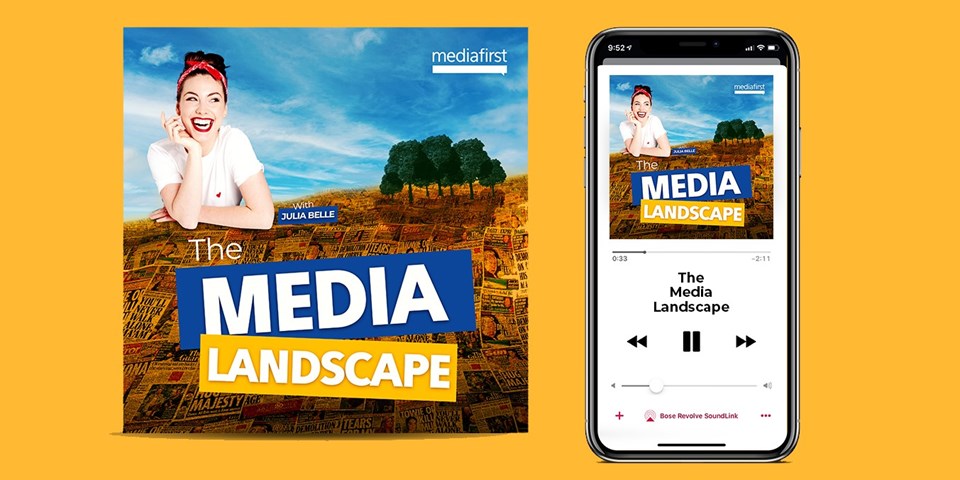Food is never far from our thoughts at Media First towers.
We’ve got to keep fuelled up for our media training courses.
But it’s not just eating. Journalists and consumers have an appetite for food stories.
And amid the ongoing covid coverage, the attempts to find when Downing Street was not holding a party, Prince Andrew, and the Djokovic drama, there have been seen some pretty big and potentially damaging food stories.
Let’s start with Asda.
The supermarket chain has been at the centre of a surge of negative stories, and a social media storm after pulling out of a pledge to sell only British beef.
It said the decision was taken - just a few months after announcing the pledge - because of the rise in British beef prices.
That saw condemnation from industry bodies such as the National Beef Association and the National Farmers Union.
The Telegraph reported the supermarket had “abandoned farmers” and The Scottish Farmer said it was accused of “betraying” British beef - not the sort of emotive language you would want to be associated with your brand.
Angry farmers condemn decision by ASDA to back out of promise to only stock British beef Daily Mail
ASDA ditches pledge to sell only British beef over higher prices Guardian
Farmers anger as Asda ‘chickens out’ of British beef commitment due to high prices Farmers Guardian
On social media, there have been calls to boycott the supermarket. And rivals jumped on the story to confirm their commitment to British farmers.
It may not be in crisis media management mode, but it has been a PR disaster for the supermarket.
It is an issue Julia Belle discussed in last week’s episode of The Media Landscape podcast.
“Of course, we are all feeling the pinch as the cost-of-living increases, and we are consistently obsessed with price,” she said.
“But patriotism and looking after the little guy are bigger triggers for large chunks of the British public. Ever since Brexit, this narrative has been really prominent.
“So, Asda actively pulling out of this promise - and pulling out so quickly - puts them under more of a spotlight than Tesco, which has always been selling a mixture of British and Irish beef.”
And that lies at the heart of the issue - these are negative headlines that could have been avoided with a bit more thought.
Asda made its pledge back in October after its £6.8 billion takeover by brothers Mohsin and Zuber Issa.
The commitment received a lot of publicity at the time and was praised by the industry for its “patriotic support”.
But that pledge now looks little more than a hasty, ill-judged PR stunt.
Perhaps a better approach would have been to bring the commitment in without fanfare and see if it could honour it in the current market conditions before using it to gain publicity.
That’s a view shared by Philp Case, chief reporter of Farmers Weekly. He said: “The announcement came six months after the new owners, the Issa brothers who, together with TDR Capital, acquired a majority stake in the supermarket chain from its US owners Walmart.
“Maybe they had not had enough time to put their feet under the table to properly think about the implications of this announcement.”
He described the reversal as “bitterly disappointing” for the industry. But he believes Asda’s PR nightmare presents opportunities for other supermarket brands.
“Regular polling shows that British consumers want more British food on their plates,” he said.
“This is a legacy of the horsemeat scandal and the need for trust in food provenance as well as more people recognising we must support the British farming industry to ensure a vibrant rural economy.
“Budget supermarkets like Lidl and Aldi are now doing more than some of the mainstream supermarkets to back British farming by sourcing more home-produced meat.”
With that in mind, Asda sales figures over the coming months will make for fascinating reading. And will give more insight into whether or not cost is the decisive factor for consumers, particularly as many face a cost-of-living crisis.
In the meantime, anyone connected with food and farming giving media interviews during the coming weeks should expect to face questions about the supermarket’s decision, whether others will follow this example, and what it tells us about the impact of Brexit on these industries.
As part of the media interview preparation, we stress so strongly during our media training courses, they may also need to consider how to manage questions about milk.

The Media Team Academy is a 12-month learning programme that combines media and comms masterclasses with personal development sessions. Academy members also have access to our online training courses, covering presentations, crisis comms, smartphone video and writing skills.
That’s because another supermarket - Morrisons - has announced it is scrapping ‘use by’ dates in a bid to stop millions of pints of milk being wasted each year.
Customers are instead encouraged to use the ‘sniff test’ to check quality.
Ian Good, from the supermarket, said: "Wasted milk means wasted effort by our farmers and unnecessary carbon being released into the atmosphere.
"Good quality, well-kept milk has a good few days life after normal 'use by' dates - and we think it should be consumed, not tipped down the sink.
"So, we're taking a bold step today and asking customers to decide whether their milk is still good to drink. Generations before us have always used the sniff test - and I believe we can too."
It is a bold move that, while it has been met with something of a mixed reaction on social media, has secured the supermarket with a lot of positive media coverage. And it shows there is an appetite for meaningful sustainability stories.
Let’s just hope this supermarket doesn’t have to backtrack on the pledge in a few months.
Media First are media and communications training specialists with more than 35 years of experience. We have a team of trainers, each with decades of experience working as journalists, presenters, communications coaches and media trainers.
Click here to find out more about our practical media training.
Subscribe here to be among the first to receive our blogs.



